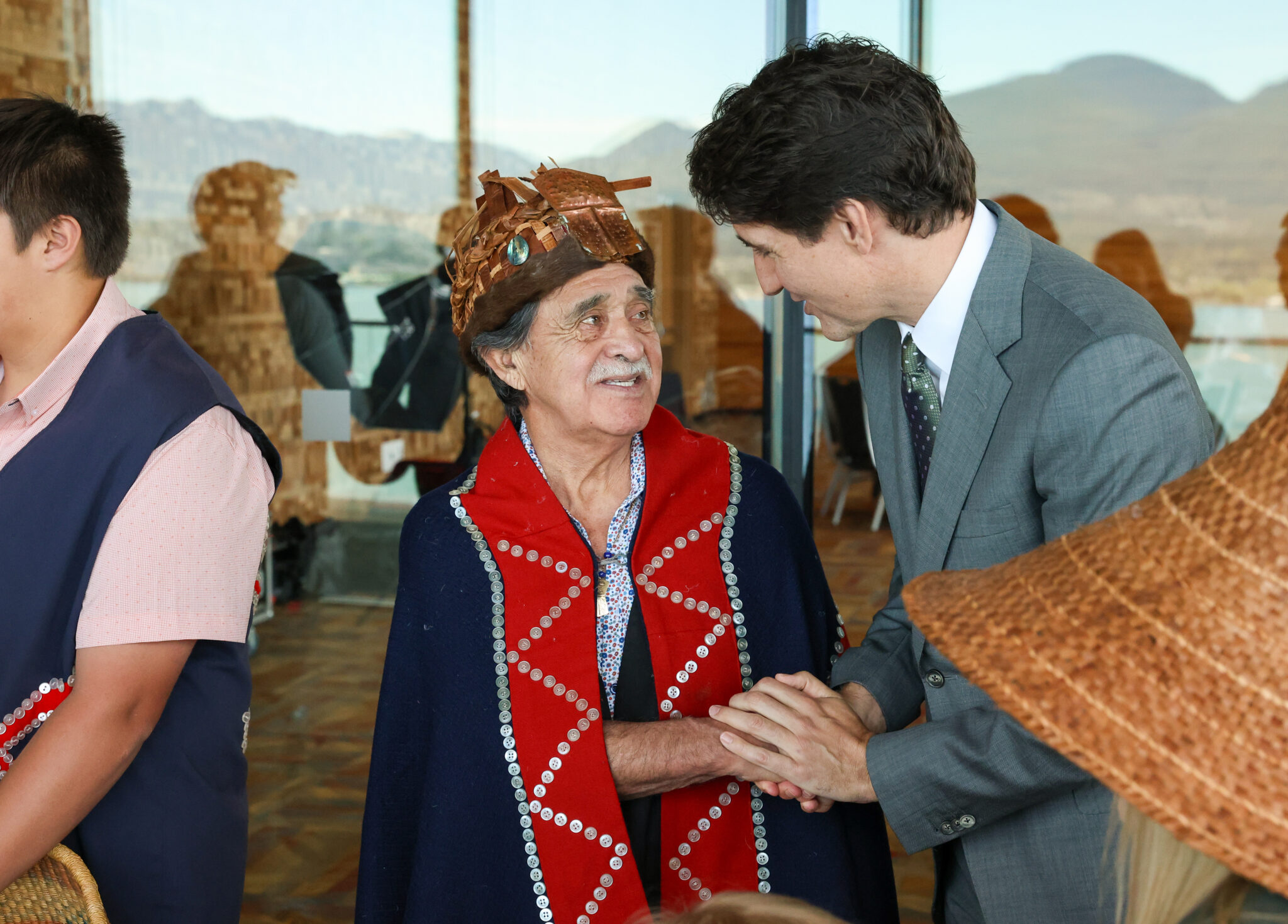The Great Bear Sea Project: Groundbreaking new conservation model launched

Great Bear Sea Project agreement, 25th June 2024 © Emilee Gilpin / Coastal First Nations
26.06.2024
A new 20 year, $335 million programme has been launched in what is a significant step forward for Indigenous-led conservation. The Great Bear Sea Project Finance for Permanence (PFP) initiative, which ERF is proud to support, is a model for long-term, large-scale conservation in the Great Bear Sea along the North Pacific Coast of Canada, covering two-thirds of the coast of British Columbia. PFPs are a proven tool for conservation finance that blend public and private investment to deliver long-term conservation and economic benefits.
The Great Bear Sea, one of the world’s most environmentally and culturally significant cold-water environments, is home to diverse marine life including herring, salmon, whales, dolphins, seabirds, and kelp forests. First Nations have stewarded this area for tens of thousands of years, relying on it for sustenance, culture, and livelihoods. However, threats such as overfishing, habitat loss, increased shipping traffic, and climate change are all contributing to declines in fish, bird, and shellfish populations.
This ambitious project will bring together 17 First Nations partners, (representing Indigenous peoples across the North Pacific Coast of Canada), the Government of Canada, and the Province of British Columbia to collaboratively conserve and protect over 10 million hectares.
The vision for the Great Bear Sea PFP includes funding for stewardship and sustainable economic development, alongside a network of Marine Protected Areas. Specifically, it will provide ongoing funding for the collaborative implementation of both the Marine Protected Area (MPA) Network Action Plan and the Marine Plan Partnership (MaPP). These initiatives are as a result of over a decade of collaboration between First Nations, Canada, and British Columbia, along with local governments and stakeholders from commercial fishing, tourism, energy, and other sectors. They have produced multi-use marine plans and a proposed a network of MPAs covering approximately 3 million hectares, or 30 percent of the Great Bear Sea. These co-developed plans aim to support healthy fisheries, conserve ecosystems and cultural sites, enable sustainable marine economies, improve food security, and enhance coastal resilience.
The project hopes to protect and conserve at least 84 species at risk using traditional knowledge and scientific methods. It is also projected to create 3,000 new jobs and provide 32,000 days of skills training.
K̓áwáziɫ (Marilyn Slett), President of Coastal First Nations – Great Bear Initiative. “The Marine Protected Area Network is designed to protect and conserve these important resources from a place of co-governance that honors our expertise and our jurisdiction over our territories. Together, we have created a model that will support the conservation goals the world needs – protecting locally and globally significant ecosystems and species – and ensuring our communities have the resources, training and equipment for durable and collaborative management.”
More information can be found here – Our Great Bear Sea